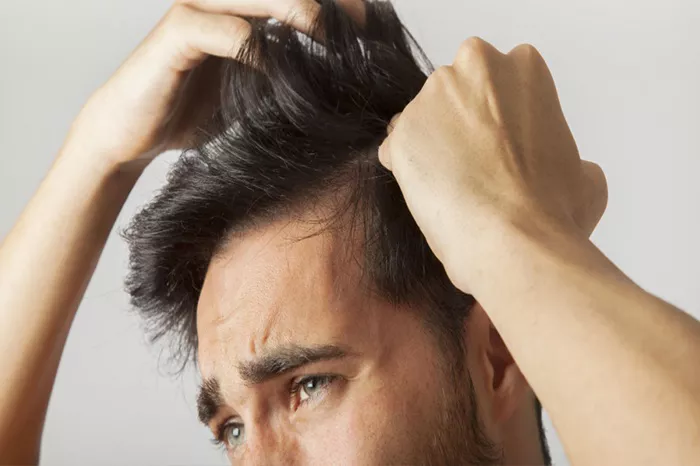Hair loss can be a distressing condition with various potential causes, including nutritional deficiencies. One common concern is whether low blood levels, particularly related to iron deficiency anemia, can contribute to hair loss. This article delves into the relationship between low blood (anemia) and hair loss, exploring the mechanisms, symptoms, diagnosis, and treatments associated with this condition.
Understanding Anemia and Hair Loss
Anemia refers to a deficiency in red blood cells or hemoglobin in the blood, resulting in reduced oxygen delivery to tissues throughout the body. One of the most recognized types of anemia is iron deficiency anemia (IDA), where insufficient iron levels impair the body’s ability to produce hemoglobin adequately.
Mechanism of Hair Loss in Iron Deficiency Anemia
Hair follicles are highly sensitive to changes in nutrient and oxygen supply. In iron deficiency anemia, reduced oxygen transport limits the availability of oxygen to hair follicles, affecting their growth cycle. This disruption can lead to telogen effluvium, a type of hair loss characterized by excessive shedding of hair due to premature entry into the telogen (resting) phase of the hair growth cycle.
Symptoms of Iron Deficiency Anemia
Aside from hair loss, IDA often presents with symptoms such as fatigue, weakness, pale skin, brittle nails, and shortness of breath. Understanding these signs can aid in early detection and prompt treatment.
Diagnosing Low Blood-Related Hair Loss
Diagnosing anemia and its association with hair loss involves clinical assessment and diagnostic tests. Blood tests, including hemoglobin and ferritin levels, are crucial in confirming iron deficiency and assessing its severity. A comprehensive evaluation by a healthcare provider is essential to rule out other potential causes of hair loss.
Treatment Options for Anemia-Induced Hair Loss
Effective management of anemia-induced hair loss revolves around addressing the underlying iron deficiency. Treatment options may include:
Iron Supplementation:
Oral iron supplements are typically prescribed to restore iron levels in the body. It is essential to follow medical advice regarding dosage and duration to achieve optimal results.
Dietary Modifications:
Consuming iron-rich foods such as lean meats, leafy green vegetables, nuts, and fortified cereals can support iron replenishment. Combining iron sources with foods high in vitamin C enhances iron absorption.
Lifestyle Adjustments:
Avoiding excessive caffeine intake, which can inhibit iron absorption, and adopting a balanced diet rich in nutrients can aid in maintaining healthy iron levels.
Managing Hair Loss Concurrently
While addressing iron deficiency is paramount in managing anemia-related hair loss, additional steps can be taken to support hair health:
Gentle Hair Care:
Avoiding harsh hair treatments and minimizing heat styling can prevent further damage to fragile hair.
Scalp Care:
Maintaining scalp hygiene and using mild, nourishing shampoos can promote a healthy environment for hair growth.
Stress Management:
Practicing stress-reduction techniques such as meditation or yoga may help mitigate stress-related hair shedding.
SEE ALSO: Can Fish Oil Supplements Cause Hair Loss?
Conclusion
In conclusion, while low blood levels, specifically iron deficiency anemia, can contribute to hair loss, prompt diagnosis and appropriate management can mitigate this issue. Understanding the relationship between anemia and hair health underscores the importance of a balanced diet, regular medical check-ups, and timely intervention. Consulting with healthcare professionals can provide personalized guidance on addressing iron deficiency and promoting overall hair wellness.
By comprehensively addressing the impact of low blood (anemia) on hair loss, individuals can take proactive steps toward maintaining healthy hair and overall well-being.
FAQs
What is my body lacking if I’m losing hair?
Hair loss can be caused by various factors related to deficiencies in nutrients or underlying health conditions:
Iron Deficiency: One of the most common causes, iron deficiency anemia can lead to hair loss. Iron is crucial for hair growth as it helps in the production of hemoglobin, which carries oxygen to hair follicles.
Vitamin D Deficiency: Vitamin D plays a role in hair follicle cycling and can contribute to hair loss if levels are inadequate.
Protein Deficiency: Since hair is primarily composed of protein, insufficient protein intake or absorption can affect hair growth and lead to thinning or shedding.
Zinc Deficiency: Zinc is essential for hair tissue growth and repair. Low levels can disrupt the hair growth cycle and lead to hair loss.
Biotin (Vitamin B7) Deficiency: Biotin is important for hair growth and deficiency can cause brittle hair and hair loss.
Will hair loss from low iron grow back?
Yes, hair loss due to iron deficiency anemia (IDA) can often be reversed with appropriate treatment:
Iron Supplementation: Taking iron supplements as prescribed by a healthcare provider can help replenish iron stores in the body.
Dietary Changes: Consuming iron-rich foods such as lean meats, leafy greens, and fortified cereals can support natural iron intake.
Combining with Vitamin C: Pairing iron-rich foods or supplements with sources of vitamin C can enhance iron absorption.
Improving iron levels typically leads to improvement in hair health, with regrowth often observed within a few months of treatment initiation.
Does poor blood circulation cause hair loss?
Poor blood circulation can indirectly contribute to hair loss:
Nutrient Delivery: Inadequate blood flow to the scalp can reduce the delivery of essential nutrients to hair follicles, affecting their growth and health.
Hair Follicle Function: Healthy blood circulation is crucial for maintaining the normal function of hair follicles, including supporting the growth phase of the hair cycle.
Improving blood circulation through regular exercise, scalp massages, and maintaining a balanced diet can potentially support hair health by ensuring adequate nutrient supply to the scalp and hair follicles.
In summary, addressing underlying deficiencies such as iron deficiency, ensuring adequate nutrient intake, and promoting healthy blood circulation are key factors in managing and potentially reversing hair loss. Consulting with a healthcare professional can provide personalized guidance and treatment options based on individual health needs.
You May Be Interested In

